A Comprehensive Guide to AI in Arbitration: Benefits, Challenges, and Ethical Considerations
Artificial Intelligence (AI) is revolutionising various sectors, and arbitration is no exception. AI tools are now being integrated into many aspects of arbitration, from document review to arbitrator selection, significantly improving efficiency. However, its use also raises important ethical, legal, and procedural questions that arbitration professionals need to be aware of.
This guide will help you understand the role AI plays in arbitration, the challenges it introduces, and the future outlook, providing you with the insights needed to navigate this evolving landscape.
What Is AI in Arbitration?
AI refers to the use of machine learning and other advanced technologies to automate tasks traditionally done by humans. In arbitration, AI is being used for various functions, including:
Document Review: AI tools can sift through vast amounts of data more quickly than any human could, identifying relevant documents for arbitration cases. Predictive coding and natural language processing (NLP) tools are becoming essential for lawyers, allowing them to focus on higher-level tasks. Learn more about this transformation in our blog post on "Practical Implications of ChatGPT for Arbitration Practitioners."
Arbitrator Selection: AI analyzes arbitrators’ past decisions, expertise, and tendencies, making the selection process more objective. This reduces reliance on subjective, word-of-mouth recommendations, potentially increasing diversity in arbitrator appointments.
Drafting Legal Documents: AI can generate first drafts of pleadings, memos, and even arbitral awards, allowing lawyers to refine these drafts instead of starting from scratch.
To gain a deeper understanding of AI's evolving role in the legal sector, you can also explore our post on "From 5G to ChatGPT."
Key Benefits of AI in Arbitration
1. Increased Efficiency
AI’s ability to process large volumes of data in a short time significantly increases efficiency. Lawyers can complete complex tasks more quickly, allowing arbitration proceedings to move faster. Tools like ChatGPT, for instance, can assist in preparing drafts, summarising long documents, and even conducting initial legal research. This time-saving aspect is essential in high-stakes international arbitrations where large datasets need to be analysed efficiently.
2. Cost Reduction
By automating tasks such as document review and discovery, AI reduces the costs associated with arbitration. Expensive, time-consuming tasks are now completed in a fraction of the time, which is especially beneficial in large-scale, complex disputes.
3. Improved Accuracy
AI systems can help eliminate human errors in areas like document review, where oversights can have serious consequences. AI algorithms can analyse patterns and spot inconsistencies or errors that a human might miss. However, it’s essential to be aware of potential risks, such as hallucinations or errors that AI tools like ChatGPT might introduce. You can learn more about this in our blog "Exploring the Boundaries of AI in Legal Disputes and Ethical Considerations."
Challenges of AI in Arbitration
1. Bias and Transparency Issues
AI algorithms are not immune to biases, particularly when trained on biased datasets. This is a major concern in arbitration, where fairness and impartiality are critical. The risk of biased AI outputs could lead to discriminatory decisions, especially in processes like arbitrator selection or eDiscovery. Additionally, the "black box" nature of many AI systems means that the reasoning behind AI decisions can be opaque, making it difficult to challenge unfair outcomes.
Our blog post, "Exploring the Challenges of Bias and Lack of Transparency in AI," delves into these concerns and how the legal industry can address them.
2. Confidentiality Concerns
Arbitration often involves highly confidential matters. AI systems processing sensitive data raise concerns about data privacy and security. AI tools, particularly those relying on cloud-based services, may be vulnerable to breaches or misuse, raising questions about compliance with confidentiality requirements in arbitration.
3. Regulatory and Ethical Considerations
There is currently little regulation specifically governing the use of AI in arbitration. However, the upcoming EU AI Act aims to regulate high-risk AI systems, including those used in legal proceedings. Until clear guidelines are in place, arbitration professionals must proceed cautiously, ensuring AI tools are used ethically and transparently.
For more insights on how regulatory frameworks might shape the future of AI in arbitration, refer to our post on "Artificial Intelligence, ChatGPT, Language, and Legal Professionals."
The Future of AI in Arbitration
AI is here to stay, and its role in arbitration will continue to grow. As more tools are developed and refined, we can expect to see greater integration of AI in both procedural and substantive aspects of arbitration. However, as AI's influence increases, so too will the need for clearer regulations and ethical guidelines.
The implementation of Explainable AI (XAI), which provides insights into how AI systems arrive at decisions, will be crucial in mitigating the current concerns surrounding bias and transparency. As AI becomes more widespread, legal professionals will need to balance efficiency with the ethical considerations of fairness and transparency.
To stay informed on developments, check out the ArbTech Lexicon: A Glossary of Key Concepts and Terminology in Law and Technology, which breaks down essential terms and trends in this field.
Preparing for the Future of AI in Arbitration
AI is revolutionising arbitration by increasing efficiency, reducing costs, and improving accuracy. However, legal professionals must be aware of the challenges and risks, including bias, transparency issues, and regulatory concerns. As the use of AI grows, arbitration practitioners will need to stay updated on legal developments and ethical considerations to ensure they use these tools effectively and responsibly.
For more discussions and deep dives into AI's impact on arbitration, explore our related content:
Practical Implications of ChatGPT for Arbitration Practitioners
Exploring the Challenges of Bias and Lack of Transparency in AI
With these resources, you’ll be well-equipped to navigate the exciting, yet complex, future of AI in arbitration.


